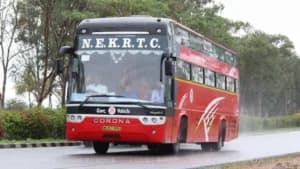The Delhi High Court has issued a directive to the Consortium of National Law Universities (NLUs), urging them to make a concrete decision to prevent any student from being excluded from the Common Law Admission Test (CLAT) due to a language barrier. This directive was issued by a division bench consisting of Chief Justice DK Upadhyaya and Justice Tushar Rao Gedela during the hearing of a public interest litigation (PIL). The PIL sought the inclusion of regional languages, recognized in the Eighth Schedule of the Indian Constitution, as mediums for conducting the CLAT examination.
The bench emphasized the need for a prompt resolution, stating, “We expect that by the next date of listing, some concrete decision qua the grievances raised in this petition shall be taken so that no exclusion on account of any barrier of a particular language occurs for those, who seek admission to law courses in the National Law University throughout the country.” The court's observations highlighted the importance of ensuring that students from diverse linguistic backgrounds are not disadvantaged.
During the hearing, the counsel representing the Consortium of NLUs informed the court that a High Powered Advisory Board had made specific recommendations on the issue. However, the matter remained under consideration, and the Consortium requested additional time to arrive at a final decision. Accepting this request, the court granted the Consortium eight weeks to finalize its decision. The bench also reiterated that any decision made must align with the court’s previous observations, which underscored that English should not serve as an entry barrier for students who have been educated in other regional languages.
Read also:
The court further noted, “It is necessary to emphasize that the language in which the entrance exam to national law universities (CLAT) is conducted cannot be a barrier for students who are instructed in other languages. To that extent, the petitioner has highlighted the issue that conducting the entrance exam in regional languages in some sections may be necessary for larger inclusion.” This statement reinforced the court’s view that language diversity in educational assessments is critical for equitable access to legal education.
The PIL had been filed to challenge the Consortium’s current practice of conducting CLAT solely in English, which the petitioners argued was discriminatory towards students who were primarily educated in regional languages. Initially, the Consortium of NLUs expressed reluctance in conducting the CLAT in regional languages, citing the complexity of translating the exam. The Consortium maintained that while translating the All India Bar Examination (AIBE) was feasible, translating the CLAT was far more challenging due to the nature of the questions.
However, the Bar Council of India (BCI) supported the demand for regional language inclusion, arguing that offering CLAT in multiple languages would open up opportunities for a larger number of citizens to pursue a career in law. The BCI maintained that making the exam accessible in various languages would promote inclusivity and reflect the linguistic diversity of India.
The Delhi High Court has now scheduled the next hearing for August 20, by which time the Consortium is expected to report on the steps taken to address the issue. The court’s intervention is seen as a significant move towards promoting inclusivity in legal education by ensuring that language does not become a barrier for aspiring law students.
Case Title: SUDHANSHU PATHAK v. CONSORTIUM OF NATIONAL LAW UNIVERSITIES THROUGH SECRETARY & ORS















